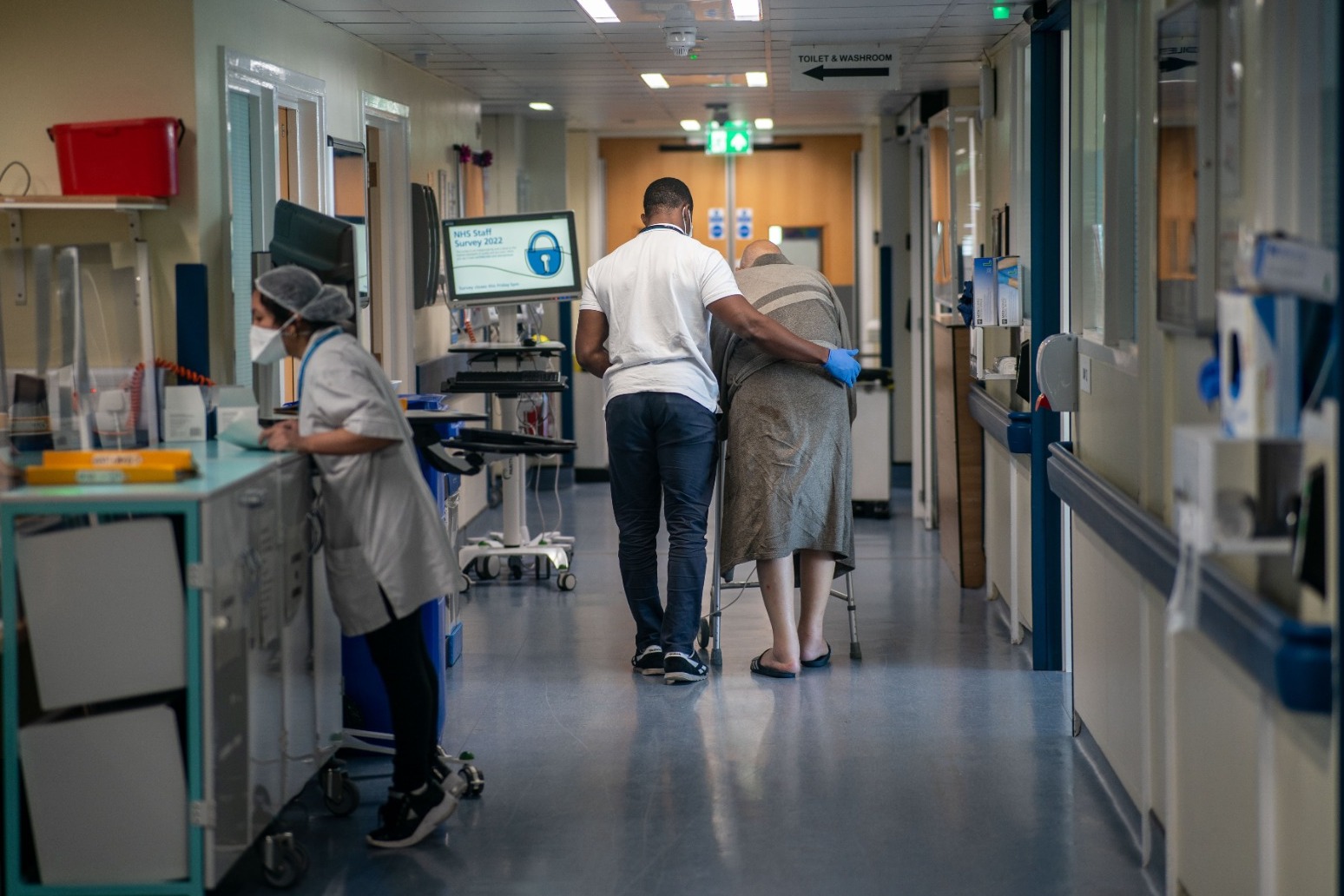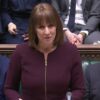-
 play_arrow
play_arrow
Chorley ONE Local Radio for Chorley
NHS trusts cut frontline clinical jobs and axe services to balance the books


NHS trusts are cutting frontline clinical jobs and axing patient services to balance the books, health leaders have warned.
A survey of trust leaders by NHS Providers found clinical jobs have already gone or are earmarked for cuts, while services such as virtual wards, diabetes clinics, rehabilitation centres, talking therapies and stop-smoking services are at risk or are being scaled back.
At one NHS trust, 600 out of 1,500 job cuts are clinical roles.
Another trust is cutting end-of-life and palliative care beds in the community, restricting stop-smoking services and working to reduce referrals to hospital.
The Providers’ survey, which ran last month, included responses from 160 NHS chief executives, chairmen and other board executive directors.
These cover 114 trusts in England and account for 56% of the sector.
The poll found 47% of trust leaders are scaling back services, with a further 43% considering this option. More than one in four (26%) said they will need to close some services.
More than a third (37%) said their organisation is also cutting clinical posts as they try to balance their books, with a further 40% considering this.
Meanwhile, 86% of trust leaders said their organisation is also cutting posts in non-clinical teams – such as HR, finance, estates, digital and communications – after being told to halve corporate cost growth.
Several trusts said they were aiming for reductions of 500 or more jobs.
In March, the then NHS chief Amanda Pritchard and Sir Jim Mackey, who is now in charge of transition at NHS England, wrote to trusts regarding the need for cuts, saying there was a “very significant financial deficit (£6.6 billion when deficit support is stripped out)” and lack of confidence that operational aims would be met.
The letter said: “We cannot allow this to continue and drift into the financial year, so we have been considering a fundamental reset of the financial regime and accountability so that we can all, quickly, get a grip of this situation and give us the best chance of delivering what our population and our staff need from us.”
In the Providers survey, 45% of leaders said they were moderately or extremely concerned the actions they were taking to make savings will compromise patient experience.
Some 61% said patient experience is most at risk of being impacted by the changes, 60% said addressing health inequalities and 57% thought access to timely care would take a hit.
Nearly nine in 10 (88%) said they did not have enough funding to invest in prevention of ill health – one of the Government’s key aims.
Other cost-cutting measures highlighted in the survey included reductions on using agency staff and recruitment freezes.
More than nine in 10 leaders (94%) said their plans would have a negative impact on current staff wellbeing and the culture of their organisation.
Interim chief executive of NHS Providers, Saffron Cordery, said: “The NHS has just undergone a significant financial reset in response to a deficit that ran across the health and care system of between £6 billon and £7 billion.
“There was clearly a pressing need to tackle what was becoming a spiralling deficit – an understandable deficit.
“I think it’s really worth remembering that this reset comes as we are in the second year of a significant financial allocation to the NHS of £22 billion over two years.
“However, it is just over £10 billion a year for the biggest public service that we have in this country, and most of the money that was allocated to the system was already spoken for.
“Things like the resident doctors’ pay award took a significant chunk of money out of the allocation to frontline services.
“We also know that inflation put significant pressure on trust budgets, and there were many, many unfunded demands on trusts.
“So whilst that money feels like a lot of money, and it is, the demands outstripped the supply of finances and there’s very little money left to invest in the measures to tackle the challenges.”
Ms Cordery said trust leaders have “heard loud and clear that overspending will not be tolerated and have made major inroads in tackling the huge financial deficit facing the NHS.
“But let’s also be clear, cuts have consequences.
“NHS trusts face competing priorities of improving services for patients and boosting performance, while trying to balance the books with ever-tighter budgets. National leaders must appreciate that makes a hard job even harder.”
She said “we have got to question” whether the Government’s three shifts for the NHS “are compatible with the needs of delivering financial recovery and for trusts to really meet the operational challenges they face”.
These shifts are preventing ill health, moving from analogue to digital, and moving more hospital care into the community.
Professor Nicola Ranger, general secretary and chief executive of the Royal College of Nursing, said: “This is NHS leaders themselves coming clean about the perilous state of the NHS.
“Reducing clinical jobs and patient services is different from any argument on NHS waste and efficiency – patient needs go unmet, hospitals become overcrowded and waiting lists grow.
“Cutting nurse jobs costs lives and Wes Streeting will need to decide if this is acceptable on his watch.”
A Department of Health and Social Care spokeswoman said: “We invested an extra £26 billion to fix the broken health and care system we inherited, and through our plan for change are determined to tackle inefficiencies and drive up productivity in the NHS.
“We have underlined the need for trusts to cut bureaucracy to invest even further in the front line, so we can support hard-working staff and deliver a better service for patients and taxpayers’ money.”
Published: by Radio NewsHubClick here to read this story in full at Radio News Hub
Written by: admin
Similar posts
Latest News
- Energy suppliers pay out 7m after overcharging 34000 customers
- NHS trusts cut frontline clinical jobs and axe services to balance the books
- UK announces fresh wave of Russia sanctions ahead of military coalition meeting
- Small but positive rise in retail footfall as sunny April encourages shoppers
- Royal Mint to launch stylish coins celebrating 150 years of Liberty
Top popular

Economic growth forecast halved as Reeves blames global instability

UKs National Wealth Fund seals 135bn loan to build North Sea power cables

Badenoch confident of leading Tories into next election despite drubbing

King and Queen unveil portraits marking coronation

Reynolds says job changes may be needed to ensure Scunthorpe steel plant future
Copyright THe Mediasite - 2024








